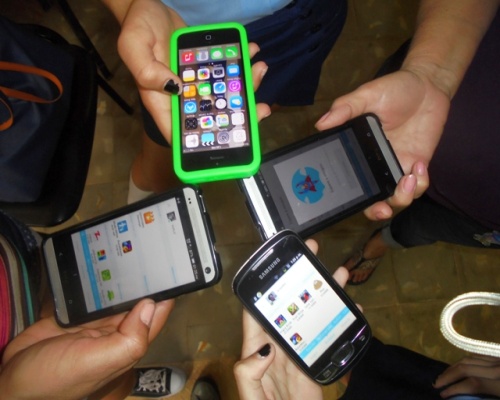Via CubaNet:
HAVANA, Cuba – Afternoon falls and everyone activates the “Wi-Fi” on their mobile phones. From Pedrito’s smartsphone, like gunshots at close range, photos of a Brazilian actress blast out to the rest of the group. In the following days, the young Cubans will agree to meet at the same time at Parcelación Moderna Park, located in a suburb of the Havana municipality Arroyo Naranjo.
Scenes like this are repeated in schools and public spaces throughout Cuba, with this type of interaction at close range, Cubans can attain a new application (app) or interesting videos. A lack of online media such as Facebook Messenger, Tango, Hangouts or WhatsApp, it has become fashionable among Cuban youth to use Zapya, a messaging application that works without Internet and has become very popular in recent months.
In the so-called “weekly package” – a volume of information that contains movies, series, documentaries and foreign music downloaded from the Internet (and distributed offline throughout Cuba) this app can also be found along with its updates.
“At first people did not pay much attention (to the app) but when they realized its utility, it began to spread, although the main limitation is the distance between the transmitter and receiver,” said Mario Rosabal, resident of La Coronela, a neighborhood west of the Cuban capital.
The (Cuban) Government’s fence to information and legal regulations regarding communications are corroded by the unstoppable progress of new technologies. In Cuba the growing demand for smartphones among young people has also increased the exchange of apps, fundamentally if these work offline (no internet access) via Wi-Fi or Bluetooth.
To read the full article (Spanish) click here.

